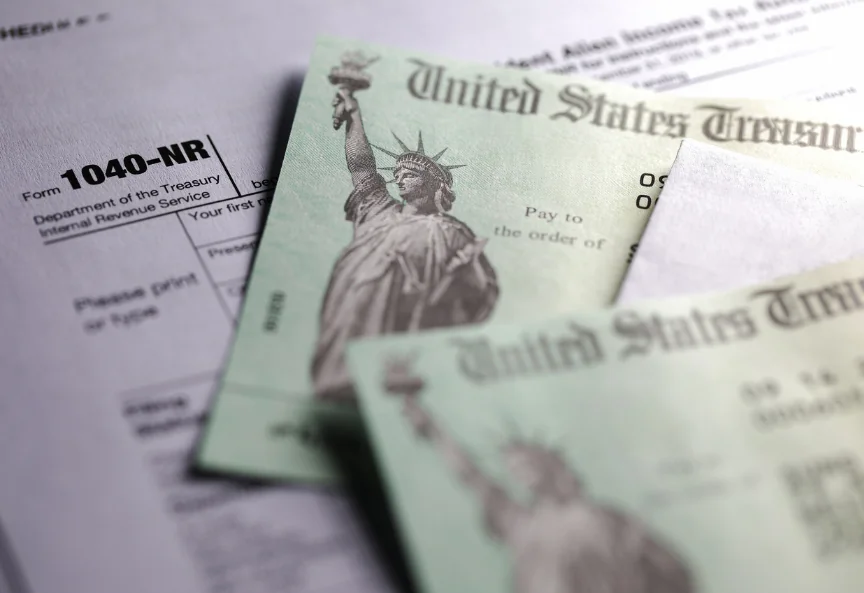An IRS audit can feel overwhelming at first, prompting you to brace for impact. But the question that lingers is: how long does an IRS audit take? Multiple factors shape the duration, including the complexity of your return, the type of audit, and how quickly you respond. An audit could be resolved in weeks—or stretch into months. What you don’t hear enough about is how your preparedness and strategy can tip the scales in your favor. Curious about what you can control in this process? Keep reading to uncover how to take charge of your audit timeline.
Different Types of IRS Audits and Their Timelines
The IRS conducts several types of audits, and the duration of each can vary significantly. Each type of audit has its own set of requirements, ranging from simple documentation requests to in-depth reviews of multiple years of tax returns.
Correspondence Audits
A correspondence audit is the most common and simplest form of IRS audit. This audit is typically conducted by mail and involves the IRS requesting additional information or clarification on specific items from your tax return. Examples include verifying deductions, income, or other tax-related items.
The timeline for a correspondence audit is generally shorter, as it revolves around mailing requested documents back and forth. If the taxpayer promptly provides all required information, this type of audit can be resolved in as little as a few weeks to a couple of months. However, if the documentation is incomplete or requires additional verification, the audit can stretch beyond this timeframe.
Office Audits
An office audit requires the taxpayer to visit an IRS office and bring specific documents for review. This audit type is more detailed and often focuses on specific areas of your tax return, such as business expenses or investment income.
The length of an office audit depends on the complexity of the issues being examined and the availability of documentation. Typically, these audits are scheduled a few weeks to a few months after the IRS's initial contact. Depending on how well-prepared the taxpayer is during the meeting, the audit itself could last a few hours. However, the overall process may take several months to resolve if further clarification or additional information is needed.
Field Audits
A field audit is the most comprehensive type of IRS audit. In a field audit, an IRS agent visits the taxpayer’s home, place of business, or the tax preparer’s office to conduct a thorough review of the taxpayer’s financial records. This audit type is generally reserved for complex tax situations, such as those involving multiple businesses, high-value deductions, or significant discrepancies in reported income.
Field audits can take much longer than other types, sometimes stretching over several months or even more than a year. The timeline is influenced by the volume of documentation the IRS needs to review, the availability of both the taxpayer and the agent, and the complexity of the audit itself. Delays often occur if there are scheduling issues, missing documents, or disputes regarding the audit findings.
Factors That Affect the Length of an IRS Audit
Several factors determine how long an IRS audit will take. While some audits are relatively straightforward, others involve more complex issues that require additional investigation or documentation.
Complexity of the Tax Return
The more complex your tax return, the longer the audit may take. Tax returns that include business income, large deductions, multiple sources of income, or foreign assets are more likely to attract detailed scrutiny. Complex tax returns often require the IRS to review additional documents and conduct deeper investigations, leading to longer audit times.
Availability of Documentation
One of the biggest factors influencing audit duration is how quickly and completely the taxpayer can provide the necessary documentation. If you respond promptly and provide all requested information in a clear and organized manner, the audit is more likely to proceed quickly. On the other hand, if documents are missing, incomplete, or unclear, the IRS may require more time to review the information, leading to delays.
Taxpayer Response Time
Timely responses to IRS requests are critical to ensuring an audit moves forward without delays. If the IRS sends a notice requesting additional information, it’s important to provide the documentation within the specified deadline. Any delays on your part can result in the audit dragging on for a longer period.
In some cases, taxpayers may request extensions to gather documents. While the IRS may grant these extensions, they can also prolong the audit timeline. It’s always advisable to provide the requested information as soon as possible to avoid unnecessary delays.
Cooperation and Communication
The level of cooperation between the taxpayer and the IRS can significantly impact the length of the audit. Clear communication and prompt responses can help ensure that the audit progresses smoothly. In some cases, disputes may arise over the audit findings, leading to back-and-forth discussions that prolong the audit process. If both parties are open to resolving the issues quickly, the audit can be completed more efficiently.
Year Under Review
The tax year under review also plays a role in how long an audit may take. The IRS generally audits tax returns filed within the last three years. However, if substantial errors or fraud are suspected, the IRS can audit returns going back six years or more. Audits involving multiple years of tax returns take longer, as the IRS must review a greater volume of information and documents.
How Far Back Can an IRS Audit Go?
In cases of suspected fraud or tax evasion, there is no time limit—meaning the IRS can audit returns indefinitely. While this is rare and typically reserved for cases involving significant misconduct, it underscores the importance of maintaining accurate and detailed financial records for a minimum of seven years. Keeping thorough documentation can help safeguard against long-term audit risks and ensure that you're prepared should the IRS decide to review older tax returns.
Taxpayers should be aware that the likelihood of facing an audit decreases as the return ages, especially after the three-year mark. However, for those who have filed complex or questionable returns, maintaining records for longer than the standard period can provide added security if an extended audit occurs.
What to Expect During an IRS Audit
The IRS follows a structured process for conducting audits. Whether you're facing a correspondence, office, or field audit, understanding what to expect can help you prepare and reduce delays.
After receiving an initial notice from the IRS, you’ll be required to gather the necessary documents related to the areas under audit. These may include receipts, bank statements, invoices, and other financial records. Depending on the type of audit, you’ll either mail these documents to the IRS, bring them to a scheduled meeting, or prepare for an IRS agent’s visit.
Once the IRS reviews the documents, they may request additional information or clarification. It’s important to respond quickly and completely to avoid prolonging the process. In some cases, the IRS may close the audit after reviewing the initial documents, while in others, they may propose changes to your tax return.
If the IRS proposes changes, you have the option to agree or dispute the findings. If you disagree, you can provide additional documentation or request a meeting with the auditor. The dispute resolution process can extend the length of the audit, depending on the complexity of the issues involved.
Can You Expedite an IRS Audit?
While you cannot control every aspect of an IRS audit, there are steps you can take to expedite the process and avoid unnecessary delays.
Be Prepared
The more organized and thorough your documentation, the faster the IRS can review your case. Before the audit begins, ensure that all relevant records are in order. This includes receipts, invoices, bank statements, and any other documents that support your tax return. Having everything prepared in advance can speed up the review process.
Respond Promptly
Responding to IRS requests for information as quickly as possible can significantly reduce the length of the audit. If the IRS requests additional documents, provide them immediately to avoid further delays. If you need extra time to gather records, communicate this to the IRS promptly and ask for an extension if necessary.
Work with a Tax Professional
If you’re facing a complex audit or are uncertain about how to handle the process, working with a tax professional can help ensure a smoother and faster audit experience. A tax attorney or accountant can help you gather the appropriate documents, represent you in meetings with the IRS, and negotiate any proposed changes. Their expertise can reduce the likelihood of errors or disputes that might prolong the audit.
What Happens After the IRS Audit?
Once the IRS has completed the audit, they will issue a report detailing their findings. If no changes are necessary, the audit is closed, and you will not owe any additional taxes. If the IRS proposes changes to your return, you will receive a letter explaining the adjustments and any additional taxes, penalties, or interest owed.
You have the option to accept or dispute the findings. If you agree with the proposed changes, you can pay any additional taxes owed, and the audit will be closed. If you disagree, you can request an appeal or challenge the findings through the IRS appeals process. Depending on the complexity of the dispute, the appeals process can take additional time to resolve.
Rush Tax Resolution: Your Powerhouse Team for Resolving Complex Tax Issues
The length of an IRS audit can vary depending on the type of audit, the complexity of the tax return, and the taxpayer’s responsiveness. While some audits may be resolved in just a few weeks, others can take several months or longer. Staying organized, responding promptly, and working with tax professionals when necessary can help ensure a timely resolution to the audit.
At Rush Tax Resolution, we specialize in handling IRS audits and resolving complex tax issues for both individuals and businesses. With years of experience and a deep understanding of tax laws, our team of attorneys knows how to protect your assets and negotiate with the IRS to achieve the best possible outcome.
We offer a free consultation to review your unique situation and provide honest, upfront advice on how we can help. We only take your case if we know we can make a difference—guaranteed. From providing IRS audit representation to negotiating settlements, Rush Tax Resolution has a proven track record of delivering results for our clients.
Don’t wait for the IRS to escalate the situation—take action now. Call 855-477-2255 to speak with one of our tax experts today and take the first step toward resolving your audit and protecting your financial future. Our experienced team is ready to fight for you.











